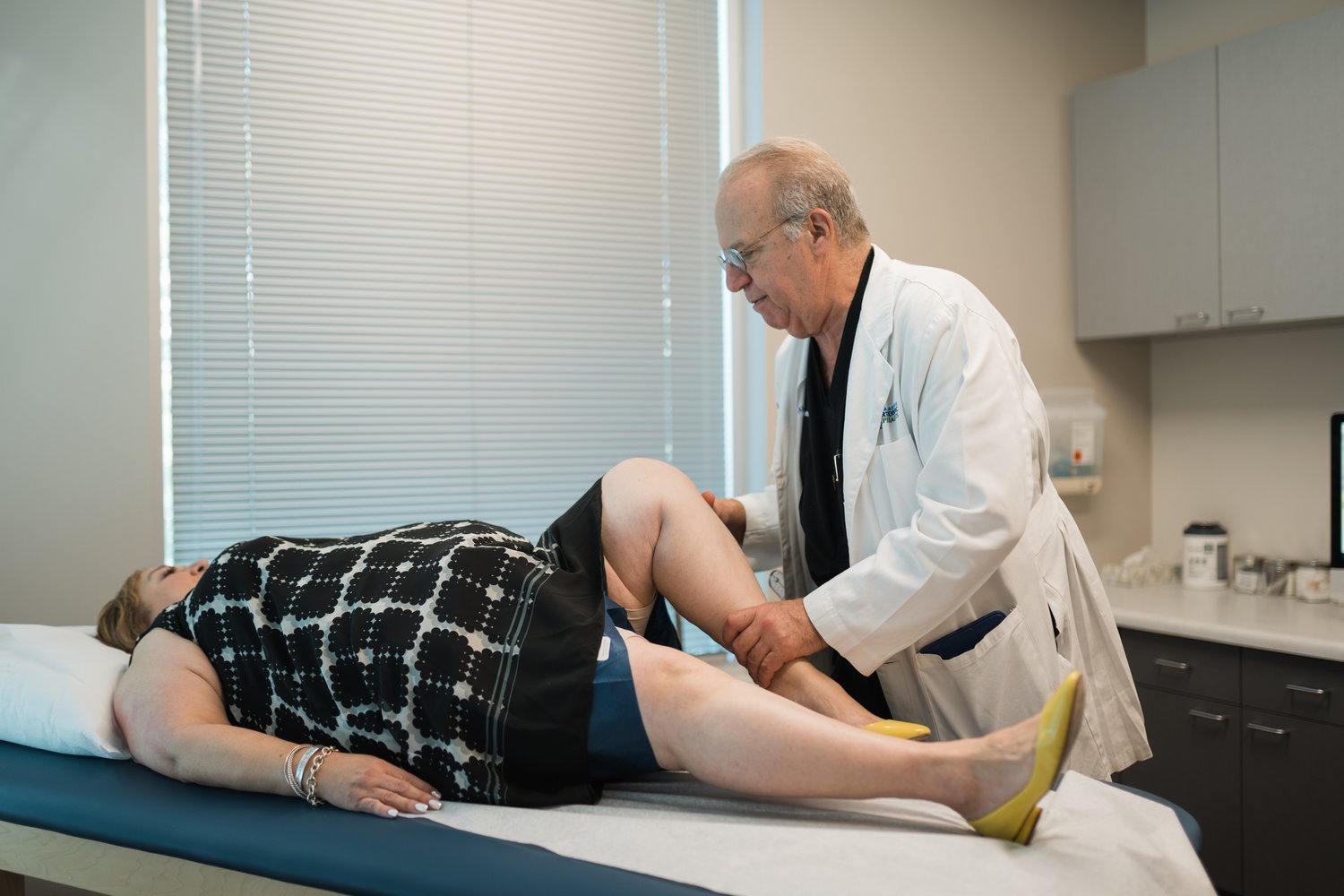iovera Treatment: What It Is and How It Helps Before Knee Replacement Surgery
When knee pain disrupts your quality of life and makes everyday tasks challenging, knee replacement surgery may become the best option to restore function and relieve pain. However, for many people awaiting surgery, managing pain in the lead-up to the procedure is critical. Among various options available today, iovera treatment stands out as an innovative approach to alleviate knee pain. Let’s explore what iovera is, how it works, and why it can be a valuable choice for pain management before knee replacement surgery.
What is iovera Treatment?
The iovera treatment is a non-surgical, FDA-cleared procedure that temporarily alleviates pain by targeting specific nerves. This advanced treatment uses cryoneurolysis—a technique that applies extreme cold to "freeze" the nerves that carry pain signals from the knee. This freezing process prevents the nerves from sending pain signals, providing relief for patients who are waiting for knee surgery or who may not yet be ready to undergo surgery.
During the iovera procedure, a doctor applies a handheld device to the knee area. This device uses targeted cold therapy to treat the nerves just below the skin. Since this is a localized, targeted treatment, patients experience pain relief without affecting surrounding tissue or causing any permanent damage to the nerves.
Benefits of iovera Treatment Before Knee Replacement
Using iovera before knee replacement surgery offers several unique benefits, including:
Non-Opioid Pain Relief
Unlike traditional pain management options that often rely on opioid medications, iovera provides a non-opioid approach to reducing pain. This is especially beneficial given the risks of opioid dependence and side effects associated with prescription painkillers.
Targeted Pain Management
iovera focuses specifically on the nerves responsible for transmitting pain from the knee joint. By addressing pain directly at the nerve level, patients may experience more effective and localized relief, which can improve comfort during the waiting period for surgery.
Minimally Invasive and Quick Procedure
The iovera treatment is a minimally invasive outpatient procedure that typically takes about 20 to 30 minutes. It requires no incisions, stitches, or anesthesia, allowing patients to quickly return to their daily activities without a lengthy recovery.
Enhanced Mobility and Improved Function
By reducing knee pain in the short term, iovera may help patients maintain or even improve their mobility in the weeks or months leading up to surgery. This can be especially helpful for those who want to stay active and maintain muscle strength to support better recovery post-surgery.
Reduced Anxiety About Surgery
For many patients, the thought of undergoing major surgery can bring anxiety, especially if they’re dealing with significant pain leading up to the procedure. By providing effective pain relief before surgery, iovera may help ease some of this worry, allowing patients to focus on preparing mentally and physically for surgery.
Comparing iovera with Other Pre-Operative Pain Management Options
While iovera is an excellent option for many patients, it's helpful to understand how it compares with other common pain management strategies used before knee replacement surgery.
1. Oral Pain Medications
Overview: Many patients are prescribed oral pain medications, including NSAIDs (like ibuprofen) or opioids, to manage knee pain before surgery.
Pros: Effective at controlling mild to moderate pain.
Cons: Oral medications carry risks of side effects, including gastrointestinal issues (NSAIDs) or dependency concerns (opioids). They can also cause drowsiness or mental fog, which might interfere with daily life.
2. Corticosteroid Injections
Overview: Corticosteroid injections reduce inflammation and can provide temporary pain relief directly to the knee joint.
Pros: Often effective for short-term relief and may reduce inflammation.
Cons: Effects are temporary, and repeated injections may not be recommended due to potential cartilage damage. Additionally, some patients may experience a limited response to steroids over time.
3. Hyaluronic Acid Injections
Overview: This treatment, sometimes called "viscosupplementation," involves injecting a gel-like fluid into the knee joint to improve lubrication.
Pros: Helps with joint mobility and provides some cushioning effect.
Cons: Relief can be mild and may not work for everyone. This option also doesn’t directly target nerve pain, so its effectiveness may vary depending on the type and severity of the knee pain.
4. Physical Therapy and Exercise
Overview: Pre-operative physical therapy focuses on strengthening the muscles around the knee, improving flexibility, and maintaining mobility.
Pros: Helps maintain strength and prepare the body for post-surgical rehabilitation.
Cons: While physical therapy can alleviate some discomfort, it does not typically offer immediate pain relief and may be limited for patients experiencing severe pain.
Why Consider iovera Treatment?
Given its benefits and non-invasive nature, iovera treatment is a valuable option for those seeking pain relief without the side effects associated with medications or injections. It can be especially helpful for patients who want a localized, drug-free solution that lets them stay active as they prepare for knee replacement surgery.
Is iovera Right for You?
The best candidates for iovera treatment are patients with moderate to severe knee pain who are planning to undergo knee replacement in the near future. Since it’s a temporary solution, iovera is not meant to replace surgery but to make the pre-surgery period more comfortable and manageable.
If you’re considering knee replacement surgery and looking for effective pain relief, talk to your orthopedic specialist about iovera. They can assess your individual needs and help you determine if this treatment is a good fit for you.
Dr. Broome recently discussed his approach to managing knee osteoarthritis (OA) pain in the San Antonio Report, highlighting iovera as a non-invasive option to help patients find lasting relief. Osteoarthritis, a common condition impacting many Texans, can make daily activities challenging due to pain, stiffness, and limited flexibility. Dr. Broome uses iovera to target the specific nerves that cause knee pain, providing his patients with an innovative way to manage pain both before and after knee replacement surgery. Read the full article here to learn more about how iovera is improving patient outcomes and enhancing recovery.
At San Antonio Orthopaedic Specialists, we recognize the impact of knee pain and the importance of comprehensive support leading up to knee replacement surgery. Our team is committed to offering innovative, patient-centered options like iovera treatment to help manage pain before surgery and set the stage for a smoother recovery. With advanced techniques and personalized care, we aim to restore mobility, relieve discomfort, and enhance the quality of life for each of our patients.




